The power of art lies in its ability to challenge, heal, and inspire. Few contemporary poets embody this transformative power more than Jericho Brown, a literary force whose poetry transcends time, deeply affecting the Black community and beyond. His work is a testament to the resilience, beauty, and complexity of Black identity, using his unique poetic form, “the duplex,” to explore themes of trauma, love, and survival. As we celebrate the Black Creators Challenge and honor legendary Black artists, writers, and visionaries, Brown’s influence stands as a beacon of creativity, resistance, and legacy.
Born in Shreveport, Louisiana, in 1976, Jericho Brown grew up in the American South, a region rich in cultural history and fraught with racial tensions. Raised in a religious household, Brown’s early experiences with faith, family, and tradition deeply informed his artistic sensibilities. He attended Dillard University, a historically Black college in New Orleans, before earning an MFA in creative writing from the University of New Orleans and a Ph.D. in literature and creative writing from the University of Houston. His academic journey set the stage for a career dedicated to exploring Black identity, queerness, and social justice through poetry.
Brown’s poetry collections—Please (2008), The New Testament (2014), and The Tradition (2019)—have earned him widespread acclaim, including the Pulitzer Prize for Poetry in 2020. His work draws from personal experiences, history, and cultural narratives to create a lyrical exploration of race, masculinity, and survival.
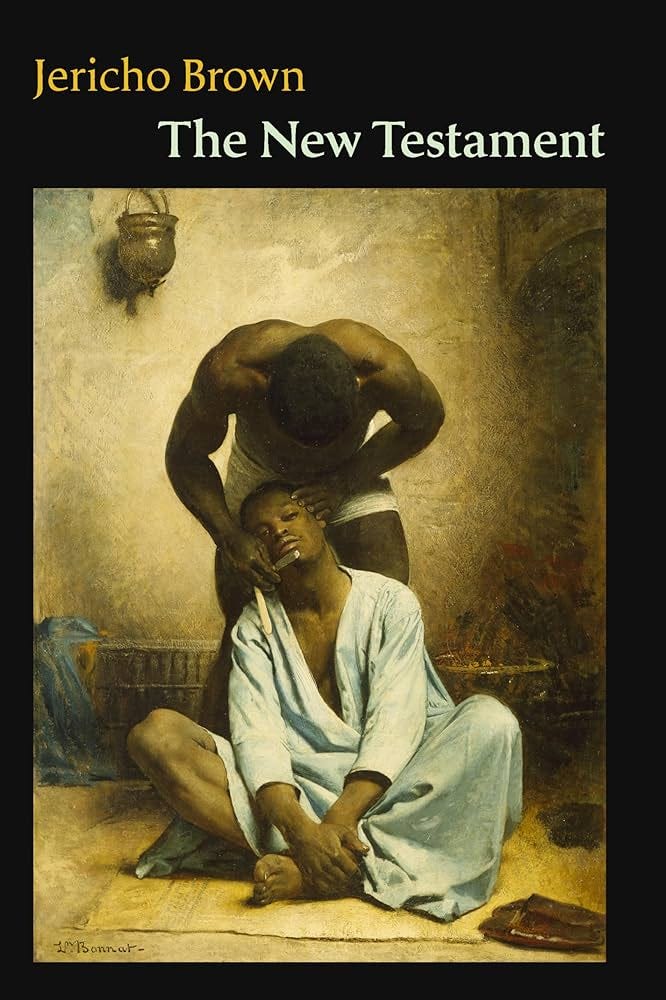
Please (2008): The Genesis of a Visionary Voice
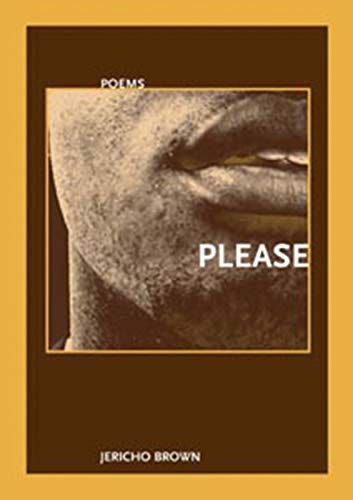
Brown’s debut collection, Please, immediately established him as a formidable literary talent. The collection takes inspiration from Black music traditions, particularly blues and R&B, to explore themes of desire, violence, and identity. The poem “Track 4: Reflections” exemplifies Brown’s ability to blend musicality with raw emotion, crafting verses that sing and sting simultaneously. Please laid the foundation for Brown’s future explorations of Black queerness, trauma, and resilience.
The New Testament (2014): Rewriting Narratives
In The New Testament, Brown expands his thematic scope, weaving together biblical allusions and contemporary Black experiences. This collection boldly reinterprets Christian narratives to address issues of race, sexuality, and mortality. In poems like “Romans 12:1” and “Homeland,” Brown deconstructs religious texts to carve out space for Black queer identity in a world that often marginalizes it. His use of spiritual language challenges traditional religious constructs, offering a vision of faith that embraces rather than excludes.
The Tradition (2019): A Pulitzer Prize-Winning Masterpiece
With The Tradition, Brown reaches the pinnacle of his literary achievements, earning the Pulitzer Prize for its searing commentary on violence against Black bodies, environmental devastation, and personal survival. The title poem, “The Tradition,” highlights the cyclical nature of systemic oppression, drawing parallels between the forced cultivation of flowers and the historic subjugation of Black lives. This collection also introduces “the duplex,” a poetic form Brown invented that fuses elements of the sonnet, ghazal, and blues. Poems like “Duplex” demonstrate his ability to innovate while maintaining emotional depth, creating a unique poetic structure that mirrors the complexities of Black life and history.
Brown’s poetry is not just art—it is activism. His work gives voice to the silenced, acknowledging the pain of racial and sexual oppression while celebrating Black joy and resilience. His exploration of queerness within Black identity has been particularly groundbreaking, challenging stereotypes and fostering dialogue about intersectionality in the community.
Through his poems, Brown has ignited crucial conversations about police brutality, mental health, and love within the Black experience. “Bullet Points,” one of his most striking pieces, reads like a chilling premonition of violence, reflecting the fears Black Americans face in encounters with law enforcement. His words offer both a warning and a call to action, compelling readers to engage in social justice efforts.
Additionally, Brown’s work in academia and mentorship has solidified his role as a guiding force for aspiring Black poets. As the director of the Creative Writing Program at Emory University, he has nurtured the next generation of Black writers, ensuring that their voices continue to shape literature and activism.
Brown’s influence extends beyond the page. His public readings, interviews, and participation in movements for racial and LGBTQ+ justice cement his role as a cultural leader. He embodies the very essence of the Black Creators Challenge: using art to preserve legacy, challenge norms, and inspire new generations of creators.
Jericho Brown’s poetry is an enduring gift to the Black community and the world. His ability to merge history, music, and personal experience into breathtaking verse ensures that his work will be studied and celebrated for years to come. As we honor Black creators, Brown’s legacy reminds us that poetry is not just words—it is survival, resistance, and love, woven into lyrical form.
In the spirit of the Black Creators Challenge, let us draw inspiration from Brown’s work to create art that continues the fight for justice and representation. His poetry teaches us that language has power—the power to heal, to uplift, and to change the world.
The Black Creators Challenge is a month-long celebration of legendary Black artists, writers, photographers, and visionaries who have shaped culture and creativity. Through weekly highlights, discussions, and creative prompts, we’ll explore their impact and draw inspiration from their work. This challenge is an opportunity to engage with their stories, reflect on their influence, and create art that continues their legacy. Whether you’re an artist, writer, or art enthusiast, join us in honoring Black creativity and its lasting imprint on the world. #BlackCreatorsChallenge
Black Creators Challenge: Jericho Brown-Inspired Activity
Activity: The Duplex Form – Weaving Past and Present in Poetry
Jericho Brown, Pulitzer Prize-winning poet and creator of the Duplex, blends the sonnet, ghazal, and blues to craft powerful, lyrical poems that explore identity, history, love, and resilience. His work often engages with repetition, reimagining lines to create layered meanings.
Your Challenge for Today:
Write a Duplex poem (or a poem inspired by its form).
The Duplex has 14 lines and follows this structure:
Line 1 is a strong opening line.
Line 2 echoes or reinterprets Line 1.
Line 3 introduces a new idea but responds to Line 2.
Line 4 echoes or reinterprets Line 3.
This pattern continues, so every other line is a repeated/reworked version of the previous.
The final line should echo the first, creating a circular effect.
Choose a theme that matters to you.
Brown’s poetry often tackles personal and collective history, race, queerness, trauma, and joy.
What stories from your life or heritage need to be told?
Focus on musicality and tension.
Let rhythm and emotion guide you.
Try writing in a way that shifts meaning slightly with each repetition.
Title & Reflect.
Give your poem a title that hints at its depth.
Write a short reflection: How did it feel to work within this structure? Did repetition open new creative doors?
Share Your Work.
Post your poem and invite discussion about Jericho Brown’s influence.
🔹 Bonus: Read Brown’s poem “Duplex” and analyze how he transforms repetition into revelation. How can constraint spark innovation?
Black Creators Challenge: Sam Gilliam
Sam Gilliam stands as one of the most revolutionary artists in American history, transforming the landscape of abstract expressionism and redefining the role of Black artists in contemporary art. Throughout his prolific career, Gilliam broke artistic boundaries with his draped canvas paintings, pushing beyond the conventional use of the frame and challe…


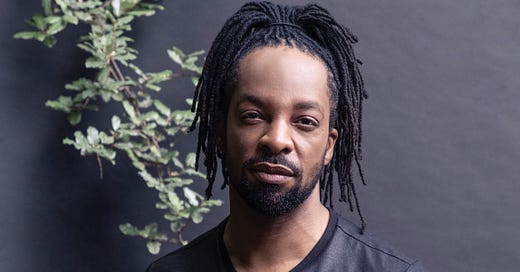



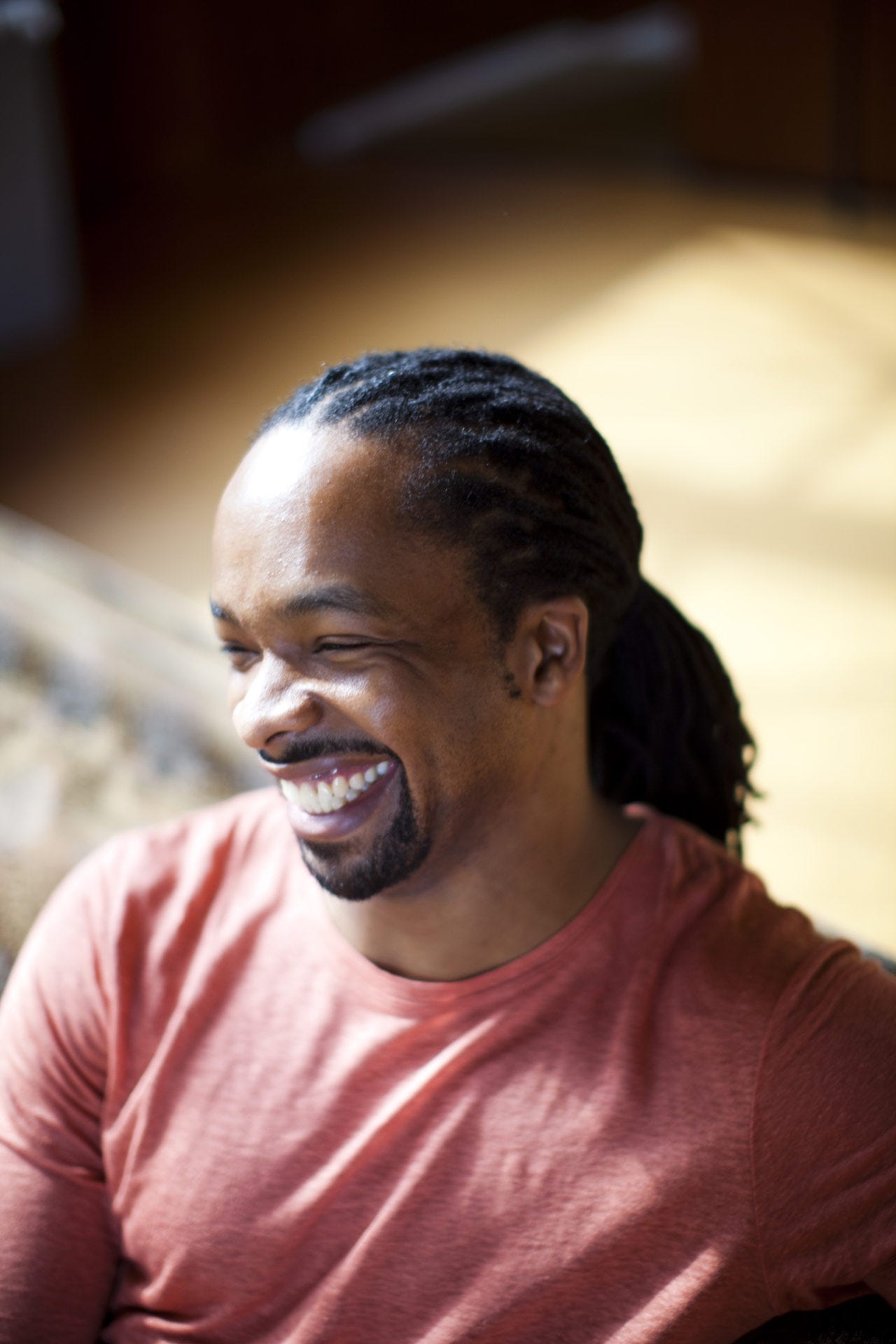
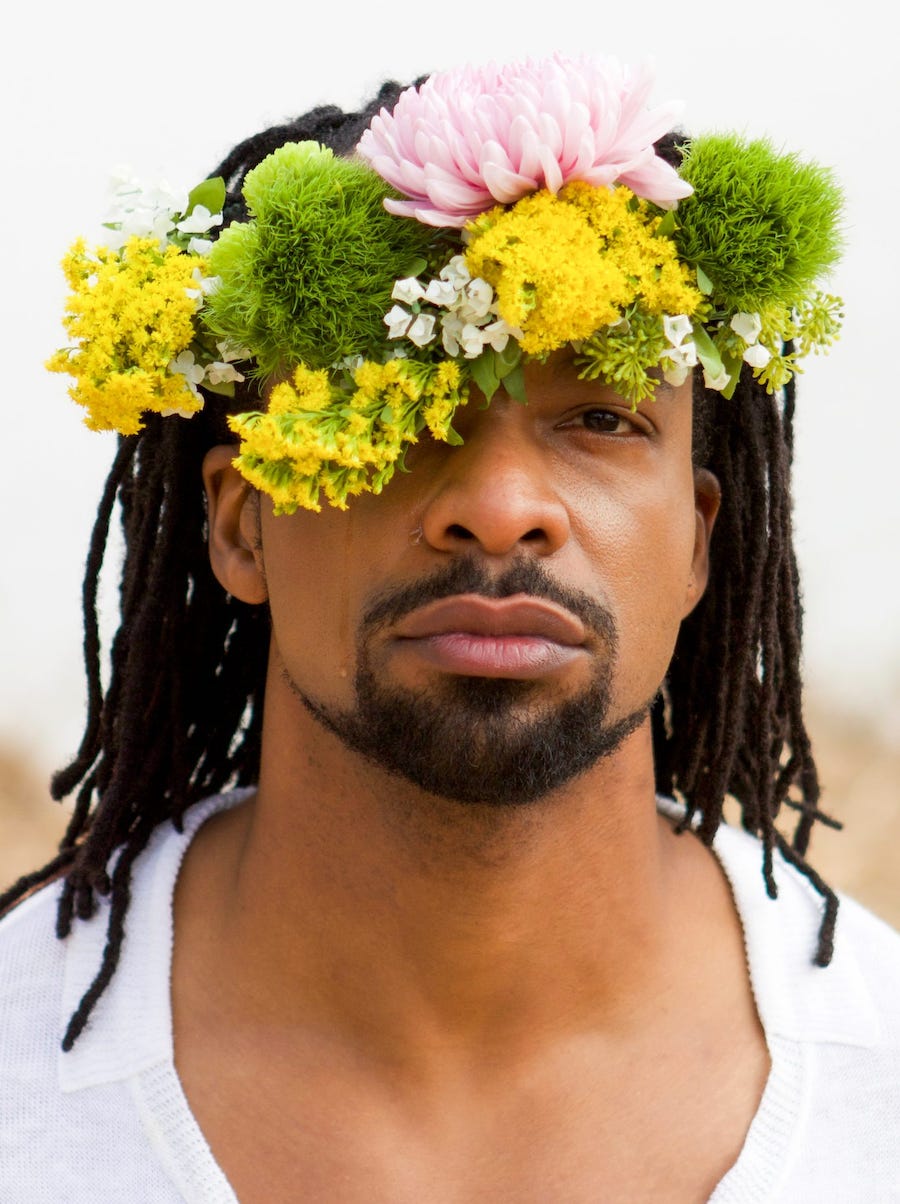


Beautiful article thank you for sharing